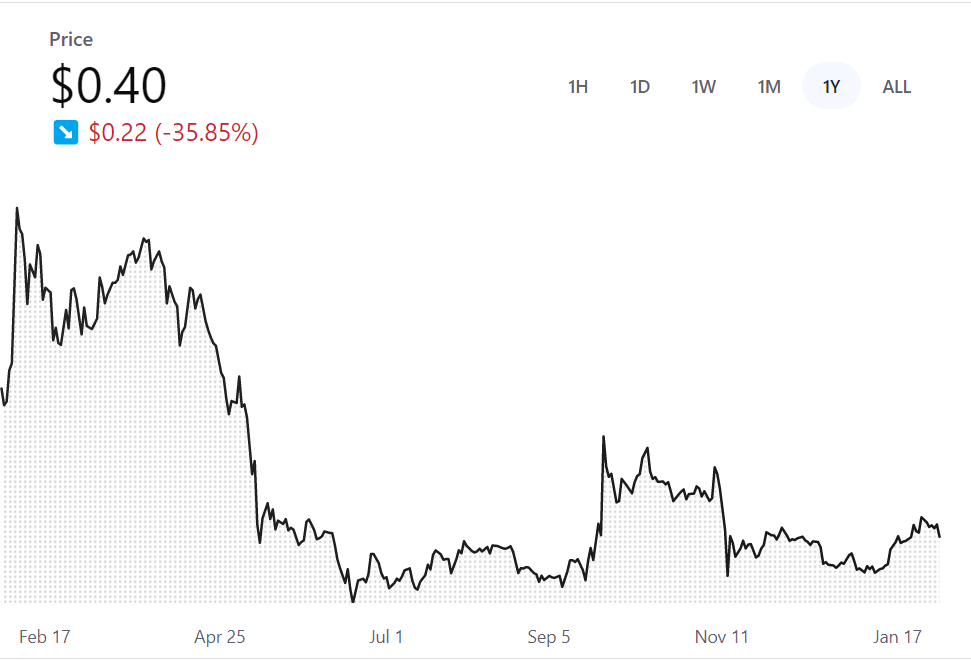Join Our Telegram channel to stay up to date on breaking news coverage
Recently, Dritan Abazovic, the Prime Minister of Montenegro, declared Ripple‘s partnership with the Balkan country. The Prime Minister had a meeting with two senior executives of Ripple, Brad Garlinghouse, CEO of Ripple, and James Wallis, Ripple Vice President for the development of CBDC (central bank digital currency). The launch of this cryptocurrency will increase financial inclusion in the country.
The intricacies of this new digital currency are yet to be disclosed, though, as Montenegro does not have a national currency. Since 2002, Montenegro has been making use of the Euro as its national currency; Montenegro will certainly be at the front in the field of technology once it issues its own CBDC. It is important to note that Montenegro requested to join the European Union in 2008 but has not yet received final approval.
Ripple and Montenegro Came Together for CBDC
Montenegro, as a nation, is always up for innovation in the financial sector. This is again witnessed in an article titled “Central Bank of Montenegro: How to Boost Banking and Payment Innovation in a Small Developing Economy” by Ivan Bošković, Head of Division, Payment Systems and Financial Technology, Central Bank of Montenegro. He stated
“The transformation of existing conditions matters because it is a fundamental source of long-term growth. Financial services which rely on digital innovations are rapidly transforming markets, and this process has been accelerated by the Covid-19 pandemic. Many countries are now trying to catch up.
Fostering innovation brings with it different challenges depending on the level of development, market size, or even the geographic position of a country. When compared to the frontrunners, small markets face barriers that are much more challenging than those found in advanced economies. However, some countries such as Singapore, Luxembourg, and Malta are among the frontrunners. Their visionary policies have paid off, and they are now treated as role models for many others…”
Dritan Abazovic, the Prime Minister of Montenegro, met with the executives of Ripple during the World Economic Forum in Davos to discuss the “development of a payment infrastructure that would provide greater financial accessibility and inclusion.” Montenegro is famous for its crypto-friendly attitude among the crypto community. The government of Montenegro has been waiting for a long time to make its strong presence in the crypto space. The co-creator of Ethereum even renounced its citizenship in April after participating in a panel in Montenegro.
Despite the fact that the country has a favorable attitude towards cryptocurrencies, the crypto industry is not properly regulated. Although a license for cryptocurrencies has yet to be issued, exchanges and exchangers should always comply with the guidelines set in the country and in Europe. The state having the far more efficient crypto operations right now is Montenegro. The government permits to make real estate transactions with the help of cryptocurrencies, including Bitcoin (BTC) and Ethereum (ETH).
Meanwhile, Ripple is also planning to increase its CBDC activities this year, as per the statement from a Ripple advisor. The company has already started its experiences in countries like Bhutan and Palau. Ripple is also a founding member of the Digital Dollar Project and the Digital Euro Association since February 2022, and it has also been one of the original supporters of these two projects. The company is embracing a focused strategy and emphasizing on smaller central banks instead of developing a solution for every central bank across the world.
The association between Ripple and Montenegro, soon-to-be an EU nation, highlights the company’s ambition to increase the use case as its bridge currency. Though there are not many details available regarding this new digital currency, however, Montenegro is the ideal nation for Ripple to kick off its pilot project, considering the liberal attitude of the country towards cryptocurrencies.
Will XRP be Used in the Project?
Ripple has been increasing its presence in the creation of central bank digital currencies (CBDCs) since the launch of the private mode of the XRP ledger in March 2021. It launched a private ledger so that central banks could easily test their stablecoins conveniently. Though it is aiming for a mark in the CBDC sector, however, it would be interesting to see whether XRP would be part of this initiative.
Ripple payment network makes use of XRP. This cryptocurrency is specifically designed for large business corporations as it provides a quick and cost-efficient mechanism for cross-border transactions. At the time of writing, the price of XRP is $0.40. Its value has decreased by 4.80% in the last seven days.
Ripple (XRP) Price via Coinbase.com
Considering the present set of circumstances, it is yet unknown whether XRP would play any crucial role in CBDC projects. However, there are possibilities of using XRP Ledger with CBDCs. Experts predict that CBDC could be offered with the help of XRP Ledger as an IOU, which would be denoted by a particular token. This would allow CBDC to leverage the high speed of XRP Ledger settlement periods. Another way is to peg CBDCs with XRP and make fast and efficient cross-border payments with the help of XRP Ledger.
Though there is a lack of clarity regarding how XRP Ledger would allow the usage of CBDC, it would be interesting to see how things will move forward in the future. Further, Ripple has been busy with its ongoing legal battle with the U.S. Securities and Exchange Commission over whether XRP tokens were offered through an unregulated security offering. It is anticipated that this battle will end within the first half of this year.
Conclusion
The long-term growth of a country is significantly dependent upon innovation in its financial sector. The significance of the above statement can easily be reflected in the fact that around 80% of banks are planning to launch their own digital currency, though most of the banks are in the stage of experimentation. Emerging economies like Montenegro would definitely get a lot of benefits from the issuance of a CBDC. Though there are risks attached to its adoption, nonetheless, all of these things can be taken care of very well with the help of proper regulations and standards.
Read More-
Best Wallet - Diversify Your Crypto Portfolio
- Easy to Use, Feature-Driven Crypto Wallet
- Get Early Access to Upcoming Token ICOs
- Multi-Chain, Multi-Wallet, Non-Custodial
- Now On App Store, Google Play
- Stake To Earn Native Token $BEST
- 250,000+ Monthly Active Users
Join Our Telegram channel to stay up to date on breaking news coverage



